COVID-19 Highway Safety Panelists Offer Insight
COVID-19 has affected virtually every aspect of everyday life, and the highway safety community is no exception. A roundtable of highway safety officials recently shared their thoughts and findings about COVID-19 highway safety during the first webinar in the Governors Highway Safety Association’s 2020 webinar series. The webinars revolve around the theme of “Forging a New and Safer Normal.”
Smart Start was the exclusive sponsor for “Quarantined! Managing Highway Safety Programs During a Public Health Emergency.” Experts included officials from the Texas Department of Transportation; Delaware Office of Highway Safety; Maryland Motor Vehicle Administration; National Highway Traffic Safety Administration (NHTSA); and the Idaho State Police. The panelists all shared their recent experiences with COVID-19 traffic safety.
Smart Start CEO Matt Strausz and Vice President of Government Affairs Debra Coffey shared a brief presentation with webinar attendees, outlining the company’s response to the challenges presented by COVID-19. Their presentation stressed the importance of quick reaction and effective communication.
Quick Reaction is Crucial
Although the effect of COVID-19 is unprecedented, Smart Start has developed effective response strategies through experience with natural disasters like hurricanes, tornadoes, or flooding.
“That kind of experience is valuable during a crisis,” Strausz said. “We know that our top priorities are to establish a response plan, and communicate that clearly to our customers and partners in every way possible.”
Even now, he added, Smart Start continues to monitor events surrounding COVID-19, staying ready to adjust strategy as the situation changes.
COVID-19 Highway Safety: A Rapidly Evolving Situation
The webinar panelists all agreed that COVID-19 highway safety presented challenges that immediately affected virtually every aspect of their daily operations.
“It’s really hard to believe how quickly so much of our lives and plans changed,” said Terry Pence, Traffic Safety Director at the Texas Department of Transportation. “There’s no question that it shocked the highway safety community in the same way it impacted so many other parts of life.”
Barbara Sauers of NHTSA agreed. “The pandemic has left very little untouched,” she said. “I really have been amazed to see how agile and responsive the highway safety community has been.”
Virtual Participation Plays a Major Role
Kimberly Chesser, Director of the Delaware Office of Highway Safety, echoed the thoughts of all the panelists by saying that technology played a critical role from Day 1. It was more than just mandating or allowing employees to work from home. The agencies quickly turned to virtual video-based solutions for a wide range of business requirements, including meetings, workshops, training, planning, and monitoring.
Pence added: “We’ve so many positive things as a result of moving so many things to a virtual environment. We found that a lot of folks are interested in opportunities to be involved in events that don’t require them to travel.”
As an example, he used a recent statewide traffic safety conference in Texas. He said the event typically draws between 275 to 325 participants in person. By switching to virtual attendance, there was a record participation of 536 participants.
The panelists generally agreed that virtual technology will continue to play a role even as the pandemic response eventually subsides. “It’s going to be a work in progress,” Kerns said.
The Importance of Staying Connected
Chesser noted that it was important to stay in close contact not only with stakeholders, but also with employees.
“We learned over time that it’s not just communicating one message with one staff member that affects them directly, but letting everyone know what the impacts are on everyone in the organization,” she said. “Keeping those lines of communication open over time, we realized it’s important to share all of that information.”
Tim Kerns is Director of the Maryland Motor Vehicle Administration Highway Safety Office, as well as an epidemiologist. He noted that staff concerns often went beyond just performing their duties, but also included overall anxiety about COVID-19.
He agreed that effective response underscores the need not just for increased communication, but for active leadership.
“We felt like we had done a pretty good job at communicating,” he said. “But we started hearing from our employees as they returned that they had felt isolated. It’s important to have a positive message from the leadership team, and let our people know that the situation will pass.”
What Does the Future Hold?
There was also a strong level of agreement among panelists that it’s no longer possible to ignore the possibility of a far-reaching event like a pandemic.
Col. Kedrick Willis, Director of the Idaho State Police, said that while their existing crisis planning was robust, “a pandemic was not on our radar. In the future, it certainly will be.”
Kerns spoke about a broad-based approach to the future using lessons learned so far from COVID-19 highway safety.
“Hopefully, we’ll never have to do this again,” he said. “But this may be something we have to hang on to for a while. While we’re adapting to the short term, I have a feeling that this is going to drag on for a little while longer, at least. We’ll have to change some of the ways that we do business. We’ll have to adapt to that as we move forward as well.”
Schedule an Installation
Get a quick and easy IID installation with Smart Start! Get started today!
¡Obtenga una instalación rápida y fácil de IID con Smart Start! ¡Empieza hoy mismo!
"* (required)" indicates required fields
Disclaimer
Meet the expert
Robert Ogle






